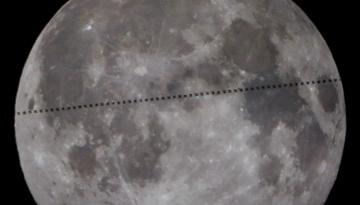A NASA spacecraft has successfully landed on an asteroid as part of a seven-year mission aiming to provide insight into the birth of the solar system.
Osiris-Rex project spacecraft launched in September 2016 and travelled 321 million kilometres to the ancient asteroid Bennu, arriving in December 2018.
Since then it has been orbiting the asteroid and preparing for landing.
On Wednesday morning the spacecraft spent four and a half hours maneuvering to the landing zone, which included dodging a boulder the size of a two-story building, nicknamed 'Mount Doom'.
The spacecraft successfully completed a 'touch and go' (TGO) landing on the ancient asteroid Bennu at 11am.
During the landing, it extended an arm to collect rocks and dirt from the asteroid's surface, which it aims to bring back to Earth for evaluation.
The rubble could provide scientists with insight into the early solar system as it first took shape billions of years ago and flung matter that could have helped to seed life on earth.
On Twitter, the space agency team said preliminary data showed the collection of rubble went as planned and the spacecraft had lifted off the surface.
"I can't believe we actually pulled this off," lead scientist Dante Lauretta of the University of Arizona told The Guardian.
"The spacecraft did everything it was supposed to do."
He said the landing took over a decade in planning and it was a "major accomplishment" for the team.
NASA administrator Jim Bridenstine congratulated the scientists on Twitter.
"We are on the way to returning the largest sample brought home from space since Apollo," he said.
"If all goes well, this sample will be studied by scientists for generations to come."
However, it could be a week before the scientists know how much, if any, rocks and dirt Osiris-Rex spacecraft grabbed during the landing.
If successful, the spacecraft will return with the samples to Earth in 2023, but if not it will prepare for another 'touch and go' attempt in January 2021.



